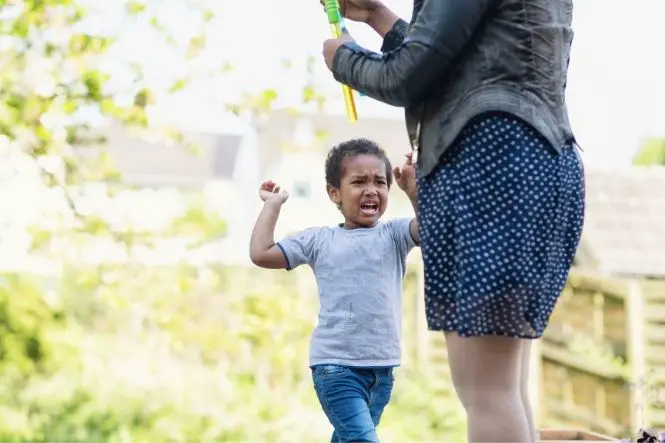Many children go through a biting phase, often related to teething when they are young but sometimes due to aggression when they are older. Whatever the cause, biting is not pleasant behaviour and a child who bites is likely to become one who finds him/herself alone and lonely. Thankfully, there is much that parents can do to tackle biting among their children.
Discover the Cause of Biting
There are many reasons that children may begin to bite others. Young children may be teething, particularly getting molars, which pain their gums and they find relief in gnawing on items – even others’ arms and legs! They may also simply be interested in what others taste or feel like and have decided to investigate with their mouths. Older children may be imitating a new friend who bites and they have decided to join in this new activity, and still others may have pent-up aggression that they can not verbalise so they act out through biting. Some children even bite because they realise that it brings them attention and they figure that even negative attention is better than no attention at all.
Discipline Biters Immediately
Even if children are biting as a way of getting attention they won’t appreciate an interruption to their activities in order to be disciplined. Parents who are dealing with a biter should call attention to the behaviour immediately by strongly advising children “No biting!” If the child does not stop biting others the phrase should be repeated and the child removed from the activity. At this point sending the child to the Naughty Step or Time Out is a good idea as it gives the child time to think about what (s)he has done. Before being allowed back to their activities, children should issue an apology to the bitten child, and/or their parents, and be able to explain to their own parent or carer what they did wrong and what they will or won’t do in the future.
Even if biting occurs frequently, it is best to discipline a child each time the behaviour occurs rather than save up discipline for later when the message of why (s)he is being disciplined could become confused or forgotten. Parents should also not attempt to show children what they are doing to others by biting the children themselves. Not only does this rarely teach a child not to bite but it usually reinforces the behaviour – Mummy or Daddy do it so it must be ok! (And imagine the embarrassment if your child actually tells that to a teacher or new friend.)
Apply the Golden Rule
When children bite others they often don’t realise that they are causing physical pain. Parents should explain this to children in simple language, for example by saying “It hurts Meg when you bite her” or “Billy doesn’t like it when you bite him”. Parents should also take this opportunity to explain the Golden Rule to children – that they should treat others they way they would like to be treated – and remind children that this applies to almost everything in life. Making this a family motto and reminding children of it whenever they misbehave will help them learn what is appropriate and what is not.
Children may begin to bite others for all sorts of reasons. Parents who are living with a biter should remember to discipline their child immediately when they bite others and use the opportunity to remind the child of the Golden Rule. Most children grow out of a biting phase on their own, but asking a GP’s opinion is advised if parents become concerned about this behaviour.



